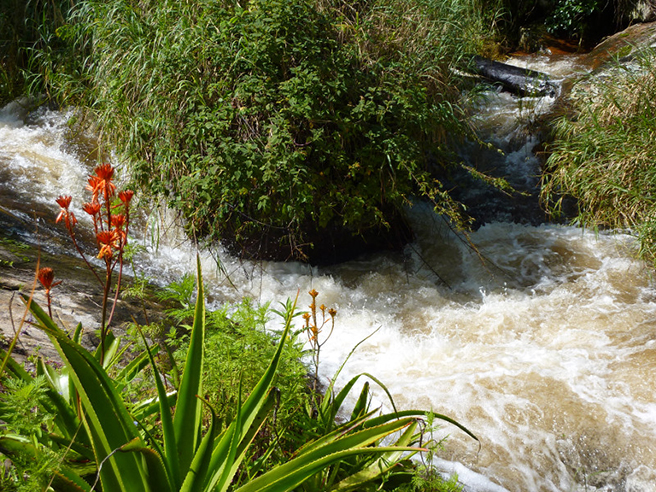Improving South Sudan’s Livelihoods and Ecosystems Through Water Management

More than 30 percent of South Sudanese do not have access to water—and in a country where 80 percent of the workforce is employed in agriculture—water is critical not only for health and hygiene, but also the majority of livelihoods.
The Imatong Mountains, located at the South Sudan–Uganda border, are of great ecological importance to South Sudan, as well as to the Kidepo Valley landscape extending from Uganda. African Wildlife Foundation is focused on the Imatongs, and the trans-boundary Imatong-Kidepo landscape they lie in, as areas in need of critical conservation due to human encroachment and development.
AWF is in the midst of a five-year program to improve the integrated watershed management of the Imatong Mountains in Eastern Equatoria State. Through this program, AWF aims to ensure that the water tower of the Imatong Mountains, and particularly the catchment area of the Upper Kinyeti River are protected and sustainably managed, to ensure long-term water access to communities and ecosystems down river.
A critical water source for communities in South Sudan—where most streams dry up at the end of the rainy season—the flow of the Kinyeti Watershed is in danger due to: increasing deforestation and land use, unsustainable honey-harvesting methods, poor agricultural methods that produce poor crop yields, illegal logging and heavy soil erosion and river pollution due to unsustainable cultivation on mountain inclines.
These activities threaten both the communities that rely on the watershed for their water supply and the ecosystem’s wildlife populations.
AWF is addressing these major threats through the training and equipping of forest guards and game rangers and also a variety of community livelihood interventions that will alleviate pressures on the forest and wildlife.
With improved access to water and alternative livelihood options, we hope to halt this cycle of deforestation and thereby ensure continued viability of the watershed.
Interested in our work? Explore our projects across the African continent.
Photo: Chris Dickens